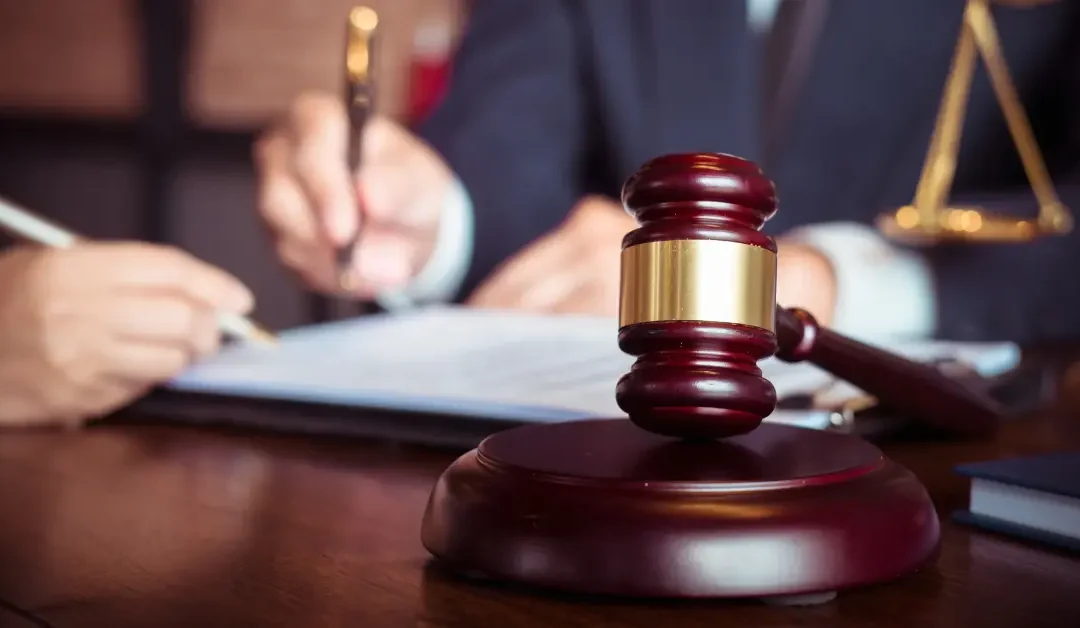Creating a will is a fundamental step in managing your estate, yet it can be daunting without the right support. An estate attorney plays a crucial role in this process, providing expert guidance tailored to your unique circumstances. With their knowledge, estate attorneys can navigate the complex legal landscape to ensure that your will adheres to state laws and truly reflects your wishes. By securing professional advice, you minimize the risk of disputes and ensure that your assets are distributed as intended, providing peace of mind for both you and your loved ones.
Essential Questions About the Will Preparation Process
How to Prepare a Will?
When initiating the process of legal will preparation, it’s essential to understand the steps involved. Your estate attorney will begin by gathering detailed information about your assets, liabilities, and family structure. This initial consultation helps them grasp your personal and financial situation, ensuring that all relevant details are considered in drafting your will. Next, they will guide you through decisions about executors, guardians for minors, and specific bequests. After drafting, you’ll review the document together to make any necessary adjustments before the final signing, which is often witnessed and formally recorded to comply with state laws.
How Do You Help Address Family Dynamics?
An estate lawyer has the expertise to navigate complex family situations and suggest structures that minimize potential conflicts. For example, they might recommend creating specific trusts or detailed instructions for asset division that consider the unique dynamics of your family. Foresight can help prevent misunderstandings and disputes among family members after your passing, making the estate attorney consultation an invaluable part of creating a peaceful legacy.
What Are the Legal Steps Involved?
Drafting a will is a crucial process to secure the future of your loved ones and ensure your wishes are legally recognized. Following the necessary legal steps helps prevent disputes and guarantees your directives are clear and enforceable. Below are the key steps involved:
- Confirm Sound Mind: Ensuring the individual drafting the will is of sound mind is a foundational step in the process. A sound mind means the person understands the nature of their assets, the people who are their beneficiaries, and the legal implications of their decisions. Without this verification, the will could be challenged on grounds of incapacity. An estate lawyer or healthcare professional may evaluate this criterion if needed. This requirement is especially important for those with declining health or cognitive impairments, as their mental clarity at the time of drafting ensures the will reflects their genuine intentions. The soundness of mind is documented to protect the will’s legitimacy and reduce the likelihood of disputes later.
- List Assets and Beneficiaries: This includes all real estate, financial accounts, personal possessions, investments, and even intellectual property. Once the assets are listed, the individual decides who will inherit each item or a percentage of their estate. Beneficiaries can include family members, friends, or charitable organizations. It’s also important to consider alternate beneficiaries in case the primary individuals are unable to inherit. The clarity and specificity in this section of the will are critical, as vague or incomplete details can lead to confusion and legal challenges. Organizing this information ensures that the will reflects your wishes comprehensively.
- Appoint an Executor: The executor is the person responsible for ensuring your will is carried out according to your instructions. This role involves significant responsibility, such as managing assets, paying debts, and distributing inheritances. Choosing someone trustworthy and capable of handling financial and legal matters is key. Many people select a close family member, a trusted friend, or a professional estate administrator. It’s also wise to name an alternate executor in case the first choice is unable to serve. Discussing this responsibility with the chosen individual beforehand ensures they are willing and prepared to act in this capacity.
- Establish Guardianship: If you have minor children or dependents, including guardianship provisions in your will is vital. This specifies who will take care of them if you pass away unexpectedly. Without this directive, the court may decide their guardianship, which might not align with your wishes. When choosing a guardian, consider their willingness, ability to provide a stable home, and values that align with your own. It’s also helpful to discuss this responsibility with the person you choose beforehand.
- Meet State Requirements: Each state has specific laws governing the validity of a will, such as the number of witnesses required during signing and whether notarization is necessary. Understanding and complying with these requirements ensures your will is legally enforceable. Witnesses should be impartial, meaning they are not beneficiaries of the will, to avoid conflicts of interest. Many states also require that the will be typed and signed voluntarily without any coercion.
By carefully addressing each of these steps, you create a will that is clear, legally binding, and reflective of your true intentions. This process not only protects your assets but also provides peace of mind, knowing that your loved ones will be cared for according to your wishes.

How Can You Ensure My Will Reflects My Wishes Accurately?
The best estate lawyers employ a thorough interview process to capture all your desires and circumstances. They might use detailed questionnaires or discussions to fully understand your goals. By employing clear, precise language and legally sound structures, they ensure that your intentions are clearly articulated and legally protected. Accuracy not only makes your wishes clear but also helps prevent potential legal challenges from heirs or beneficiaries.
Questions About Asset Distribution and Family Considerations
How Should I Prioritize Asset Distribution?
If you own a family business, you might consider who is most involved or capable of managing it effectively. Liquid assets like money or stocks might be easier to divide equally. Your lawyer will help you understand the implications of each decision, ensuring that your estate is divided in a way that aligns with your values and family needs.
What Strategies Can You Provide?
Minimizing disputes among family members is a key area where estate lawyer expertise can be crucial. Protecting family harmony when planning an estate requires a thoughtful and proactive approach. Here are some strategies that your estate lawyer might recommend:
- Transparent Communication: Hosting family meetings that include your estate lawyer allows you to explain your decisions, address concerns, and clarify your intentions. These discussions provide a platform for family members to ask questions and express their feelings, which can help resolve misunderstandings before they escalate. Transparency reduces the likelihood of surprises, which are often a source of tension after someone passes away. When everyone understands the rationale behind decisions, it fosters a sense of inclusion and respect, ensuring your wishes are honored without unnecessary conflict.
- Equal Treatment: While fairness does not always mean equality, it does mean taking into account the unique circumstances of each family member. For example, one child might need more financial support due to medical needs, while another might benefit more from sentimental items. Clearly communicating the reasons behind your decisions can help family members understand your perspective. Fair treatment demonstrates thoughtfulness and care, ensuring no one feels overlooked or undervalued. A tailored approach helps avoid disputes and strengthens family bonds, even after your estate is settled.
- Use of Mediators: In families with a history of conflict or complex dynamics, mediators can be invaluable. These neutral professionals facilitate discussions, helping to address sensitive topics constructively. Mediators ensure that all voices are heard and that discussions remain respectful and focused. By providing impartial guidance, they can diffuse tensions and guide families toward mutually agreeable solutions. Using a mediator during estate planning can prevent disagreements from escalating into legal battles, preserving both family relationships and the integrity of your estate plan.
Implementing these tips for will planning requires a careful strategy but can significantly reduce the risk of disputes and misunderstandings. By prioritizing clear communication, fairness, and professional guidance, you create an estate plan that not only reflects your wishes but also supports lasting family harmony.
How Do You Incorporate Trusts into a Will?
Your living trust attorney can help set up various types of trusts, depending on your specific needs, such as a revocable living trust, which allows you flexibility during your lifetime, or an irrevocable trust, which can provide tax benefits and asset protection. For real estate, establishing a property management structure within your will can ensure that properties are maintained and managed according to your wishes, potentially preventing costly disputes and easing the transfer of property to beneficiaries.
Financial and Cost-Related Questions
What Is the Cost of Making a Will?
Some lawyers offer flat rates for straightforward wills, while others may charge an hourly rate for more complex situations involving trusts, multiple properties, or large investment portfolios. It’s important to discuss all potential fees upfront to avoid surprises. Transparency in billing practices reflects the integrity of the service and ensures that you can budget appropriately for your estate planning needs.
Are There Additional Fees?
In addition to the basic costs associated with drafting a will, there might be additional fees for estate lawyer consultation sessions. These consultations can include discussions about potential tax implications, the setup of trusts, or advice on how to handle specific family circumstances. Lawyers might also charge for ongoing services such as updates to your will or consultations following significant life changes. Always inquire about these costs during your initial meeting to understand the full scope of potential expenses.

How Can You Help Minimize Estate Taxes?
This is a common concern for many individuals during the estate planning process. An experienced estate attorney can provide strategies to reduce or defer tax liabilities. One of the most common techniques is establishing charitable trusts, such as a charitable remainder trust (CRT) or a charitable lead trust (CLT). These vehicles allow you to donate a portion of your estate to a chosen cause, receiving tax deductions while still providing income or assets to your beneficiaries. Strategic lifetime gifting is another way to transfer assets to heirs during your lifetime, taking advantage of annual gift tax exclusions.
Placing assets in certain types of trusts is another powerful way to minimize estate taxes and protect wealth. Irrevocable trusts, for example, remove assets from your taxable estate, ensuring that they are not included when calculating estate taxes. Specific trust types, like grantor-retained annuity trusts (GRATs) or generation-skipping trusts (GSTs), offer additional benefits for reducing tax burdens. A GRAT allows you to transfer appreciating assets to heirs while retaining income for a set period, effectively minimizing the taxable value of the transfer. A GST enables you to pass wealth directly to grandchildren or future generations, bypassing the layer of estate taxes that would otherwise apply at each generational level.
What Ongoing Costs Should I Expect?
Updating your will is an important part of ensuring that it remains aligned with your current wishes and circumstances. Estate lawyer guidance is invaluable in this process, particularly as your life changes due to factors like marriage, the birth of children, or the acquisition of new assets. Discuss with your lawyer how often your will should be reviewed and what costs might be involved in making amendments. Regular updates can help avoid legal complications later and ensure that your estate plan accurately reflects your current situation.
Clarifying the Role of Related Legal Professionals
When Should I Consult Property Lawyers?
Consulting property lawyers during estate planning is essential when you have significant real estate investments. These specialists handle the complexities of property law, ensuring that all legal aspects of transferring property are managed correctly. They can collaborate with your estate lawyer to integrate your real estate into your overall estate plan, addressing issues like titles, deeds, and potential zoning issues that might affect inheritance.
How Do You Collaborate with Other Attorneys?
Collaboration among different estate planning attorneys ensures a holistic approach to your estate plan. Your primary estate lawyer might coordinate with tax attorneys, property lawyers, and trust officers to cover all bases. This teamwork is crucial when dealing with complex asset structures or business interests that require specialized knowledge. By working together, these professionals can create a seamless estate plan that addresses all legal and financial aspects comprehensively.
What Makes You One of the Best?
Identifying the best estate planning attorney involves looking at their track record, client testimonials, and unique qualities. Attorneys who are transparent, approachable, and deeply knowledgeable stand out in their field. They often combine meticulous attention to detail with a compassionate understanding of their client’s needs, ensuring every estate plan is not only legally sound but also aligned with the individual’s goals. A lawyer’s ability to build trust and provide clear guidance underpins their reputation and success in estate planning.

Asking the right questions during a consultation with a lawyer for wills is the foundation of an effective estate plan. These inquiries help clarify the lawyer’s approach, ensure they understand your unique circumstances, and confirm their ability to address any specific challenges. From exploring the cost of making a will to understanding how they integrate legal tools like trusts, these discussions set the stage for a comprehensive and personalized plan. By engaging in this dialogue, you gain a clearer perspective on your lawyer’s abilities, fostering confidence in their expertise and approach.

